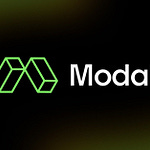Right now it’s hard not to read about anything except OpenAI’s rapidly evolving situation. At the same time, even if the future of OpenAI’s technology and ecosystem is uncertain, there is certainly a wave in AI that is unlikely to be deterred for long. Given this, I’m going ahead and publishing this post on AI in Customer Success, which is as relevant today as it was when I queued up this post last week. With that said, let’s dive in!
***
AI is quickly transforming many professions, including the role of Customer Success. I was psyched to join a panel on this topic at Matik’s recent AI+CS Summit and am republishing the conversation here. The panel was moderated by Nik Mijic and included Zeya Yang at a16z, Grace Ge at Menlo Ventures, and John Gleeson from Success Venture Partners.
We covered topics such as:
What types of AI companies are attracting investors right now?
How is AI being adopted within tech companies?
How should CS teams be using AI?
You can listen to the conversation or else read the lightly edited transcript below. Enjoy!
If you’d like to learn more about B2B use cases for generative AI, subscribe here for free!
Transcript
Bex Sekar: Welcome to Matik's AI and Customer Success Summit’s discussion, “Untangling AI: What to Expect in the Future.” I'm excited to introduce our speakers for this session. As I introduce them, I'm going to have them answer our icebreaker question: What would you use AI to automate in your life outside of work? So, to kick us off, I’m excited to introduce Nik Mijic, Co-founder and CEO of Matik, who will also be the moderator for this panel. Nik, what's your answer?
NM: I don't know if we're quite there yet, but I would probably say laundry. I can't stand doing laundry. So laundry would be top of the list to automate, if possible.
BS: Awesome. Allison Pickens, founder and general partner of The New Normal Fund.
AP: Hi everyone. For me, if I could have an AI that could automatically detect when we're low on diaper supplies and foods that my household consumes repeatedly and just auto-refills them, that would be outstanding.
NM: We also have Grace Ge, Principal at Menlo Ventures.
GG: Thanks, Bex. I feel like mine is really basic. I just want someone where I can give a stream of consciousness of personal tasks to, versus putting it in a Notion to do list. I’d just like to be able to say it verbally and have all of that decision making, all those preferences, all of those actions be automatically taken care of.
NM: I love that one. I think I would also use that. We also have John Gleeson, Founder and Managing Partner of Success Venture Partners.
JG: I love to surf and I also have a young family. So, I don't have a lot of time to go surfing. The surf forecasts are fine, but I've got all of these little algorithms running in my head about which spot is best on the best day. So, I would build a AI to say, okay, you have 45 minutes. Your best bet to get the best wave at this day is right here. Go get it. And then I could do my activity as much as I want. I don't get to do it nearly as often as I'd like with all of the other commitments in life.
NM: And last but not least, Zeya Yang, Partner at Andreen Horowitz.
ZY: Mine is building on what Allison said. I was thinking I would have a fridge that would restock itself automatically. And then every day it would also tell me what I need to eat or cook. And then, maybe we get to the point where it also cooks for me.
NM: Thank you all for being with us here today. To kick things off, the first question is what are some of the things that you guys are seeing from an investment standpoint when it comes to AI? Are there certain categories that you guys are seeing a lot of investment in?
GG: I think Zeya and our respective firms, Menlo and a16z, have had a really interesting front row seat to see what's happening in this new golden era of AI. And it's kind of incredible. If you look at some of the data around investment activity, I think PitchBook recently put this out, but in just the first six months of 2023, I think more than 15 billion has gone into generative AI companies globally. Obviously, the majority of that is Microsoft's 10 billion investment. But even if you take that aside, the value of VC investing going into generative AI is up 60% or so compared to the same period in 2022. And when we look at areas that investors are really excited about, this is how we break it down.
At Menlo, there's core infrastructure. So this is the foundational model layer companies and vector databases. So Menlo is an investor in Anthropic, obviously OpenAI is one, Cohere is one.
Then you have the vector databases, Pinecone, Chroma, Weaviate.
Then you move up the stack, and this is where things start to get really interesting. This is what we call the middle layer dev tooling. This is anything from agent app frameworks like Langchain, Fixie, AutoGPT. There's model selection, routing, training, deployment. So companies like Replicate, Modular, MosaicML was just acquired by Databricks for a billion.
And then you get to the app layer. And so we classify that as horizontal like Jasper or RunwayML, or vertical like Harvey. And I don't think there is one area necessarily that is getting more attention than others. I think the reality of it is investors are excited up and down the stack and we continue to be so.
ZY: We think about it very similarly. Whenever there's a big tech shift like this, it's helpful to think about the tech stack. We wrote a piece about the emerging LLM app stack. There's the foundational model layer. Then you need a database layer. Then there's a frameworks and orchestration layer. You're going to need observability and monitoring, and then ultimately the applications.
Echoing Grace, I think we've seen investment activity throughout the entire stack. One other way we can think about it is to ask if the company is totally AI- or LLM-native, or is it a startup that maybe was doing something else or was still trying to figure out product-market fit and then now had the opportunity to adopt LLMs or AI very early on? Sometimes that helps frame the team and the DNA. How they think about the advancements is so important.
NM: When I go on LinkedIn, the feed is filled with companies posting about AI in general. Where do you think we are in the hype cycle or adoption curve? Are we crossing the chasm at this point? How do you guys see the adoption of AI across your portfolios?
GG: Adoption across our portfolio of companies has been incredible. We talk about this internally a lot. Unlike other paradigm shifts in tech, mobile, cloud, etc., this feels like one of the first ones where both startups and incumbents are embracing it fully head on. The speed of adoption has been insane.
We have an internal graph where we talk about the complexity of the AI stack and where companies are on the maturity curve. You can be at the bottom where you're just doing prompt engineering. Maybe you're going up the stack where you've adopted a vector db. And then at the highest end you're creating your own custom LLM. We believe as companies gear up their maturity and sophistication and understanding of AI, they'll go further up the AI complexity curve.
To your other question about where we are in the hype cycle, I think we're still very, very much at the peak of expectations. I know Gartner has that curve. There's the trigger of innovation, then there's the peak, and then you go down the trough of disillusionment. I don't think we're there yet. Despite the metrics from ChatGPT saying that for the first time in June they saw a decrease in unique visitors and a decrease in the amount of time. You look at NVIDIA's blowout quarter and their earnings this week and just they added 50 billion in valuation because they blew out their forecast. And I think we're still very, very much in the early innings of excitement here.
NM: Tying it back to customer success, obviously a big topic of the summit is how AI can impact CS. John, both you and Allison obviously have a background in CS. So how do you guys envision CS teams using AI?
JG: Not too long ago I was operating in a high growth company. That was only last January. And from last January to now I almost feel like I've aged or become a dinosaur because these topics were just starting to emerge. How do we equip our teams? There was a lot of fear early on. What is this going to mean for CS where we completely automate the whole thing?
In CS, we generally don't deal with the whole AI stack. We're generally dealing with the point solutions, the app layer of it. There’s change management involved. Initially what I started to hear was people saying that they’re going to do an outright ban on the app layer, prohibiting teams from using ChatGPT. What ends up happening is people skirt that, because there are real productivity gains. There's a real duty for leaders to figure out how to achieve those gains and also ensure safety. We're still definitely in the early innings of all of the solutions that will come to market and support CS teams. We're just at the tip of the iceberg when it comes to the app layer for sure.
AP: I see CS teams trying to adopt AI in three different areas. First, people are trying to figure out how to make CSMs more productive. Second, how to fully automate some customer-facing activities. And third, how to improve the product in a way that makes the CSM’s job much easier. I'll list a few examples in those three categories.
In terms of making CSMs more productive: There are a ton of products out there right now that are summarizing meeting notes and action items from meetings. NotetakerAI is one that I've been seeing a lot.
I actually just this morning was brainstorming with Pi.ai, which is a conversational AI. I gave it a hypothetical situation with a client that was going to churn and talked to it about how could we actually save this client. I was curious to know if other people have used it that way.
I'm also seeing products for synthesizing research about companies by scanning public filings or job descriptions and then generating talking points for CSMs. Auto-generating decks for meetings is also an opportunity for AI. Obviously Matik is paving the way in that category.
Under that second area of automating the role of CSM or support, I see a lot of companies using support chatbots, which I think could be used for answering basic how-to questions, as well as automatically emailing the long tail of customers with upsell campaigns. Wizia is one company that's initially targeting SDRs for this use case, but I think it’s also relevant for CSMs.
Under the category of improving the product so that CSMs don't have to do as much work, those chatbots in-product can be really useful for gathering feedback from customers and gauging their interest about what would they like to see on the roadmap.
As well, there are products like Atlas that are trying to make it easier to create and maintain documentation for the product. Right now, companies like Stripe staff up huge teams of people to do that.
Then finally, there's a company I've been working with that's helping people auto-generate configurations for software, to customize the product to your use case, that could open up so many possibilities for automating the onboarding process completely. There are a lot of interesting things on the horizon.
NM: I agree, and I think you touched a lot upon the data aspect. CSMs are touching a variety of data sources. Whether it's CRM data usage, data that's living inside of a product or even inside of a BI tool, they're having to go and pull all of that stuff together to make those meaningful insights.
The data enablement piece is going to be a huge lever to be able to up level your CSMs to be able to talk to data and more confidence, especially being able to tie it back to value.
What are the organizations that you feel like are poised in terms of having success in an AI-led future? I know that you all mentioned we're early on, but it seems like this is here to stay. It's only going to get bigger and bigger. So what organizations do you feel like are set up for success for adopted?
ZY: There's been a lot of talk the last few months about how well the incumbents seem to be positioned, especially in the early innings for the reason that they have the distribution. But again, because we're in the early innings, the expectation is that the full potential of AI and capabilities is going to require a bigger, more fundamental shift in how products are getting built. And naturally in that case, you'd have to believe that the startups are going to be the ones who can innovate and come up with what that new paradigm looks like. That’s because the incumbents are somewhat constrained by their existing products and their core business.
And maybe today, if all you're really trying to do is use an API and then embed some auto-response capability into your product, that's very easy to do. But if you're actually trying to change a user experience or the way a CSM does the job, then somebody who can move faster and isn't confined to an existing product is probably going to have the advantage there.
GG: I would agree with Zeya's point. The only thing that I would add is that especially as an investor, the question is what does the future look like if you're investing at the app layer? What does the future of apps that are powered by generative AI look like? I don't think we've seen the best apps that have been created yet. There's so much innovation in the future, and I think there's so much ahead of us that will really shock us in terms of what the future will look like.
So, as an investor, I think where incumbents have an advantage, especially in distribution and product, is if you are just creating another company that looks like an existing incumbent, but just with generative AI powered by OpenAI, Anthropic, the incumbents will have the advantage. If you are creating a completely different application that we haven't even been able to dream of, then I think, obviously, innovator's dilemma. So, startups will prevail.
AP: I really like what Grace said. I would add that AI changes the power dynamic within companies and changes what the software needs are as a result. That opens up new opportunities to build products, and startups likely have the advantage, because the use cases are nascent and initially represent too small of a market for incumbents to notice.
One example is Ignition, a startup helping to power marketing campaigns end-to-end using AI. Their point of view is that the role of product marketers is changing. PMM used to be considered a small, though well-respected, sub-function within broader marketing. But Ignition believes that those teams are now going to be the most important team within a marketing organization. That’s because they own the content, the production of which is the primary use case for AI. AI is on the rise, so content matters more now. Ignition is now selling to and empowering product marketers as their wedge. There's not really an existing incumbent that's owning product marketers at the moment.
To Grace's point, I think new categories will be created simply because there are new needs resulting from there being new or different roles within companies.
JG: I completely agree with that too. I reflect on even what we did at Motive. We brought the trucking industry online for the first time. But largely the way in which we did that at the start was digital transformation. We mimic things that existed in real life and put them on a computer for the first time. But when you think about AI, there may be an entirely new way to do things.
And so like Allison said, there's such a reshuffling of where maybe the power in organizations or where the value clusters are. And there will be a shift in the teams that either rise or become more important within organizations.
NM: What are some of the red herrings when it comes to AI that you have come across?
AP: One thing that I found to be distracting for early stage startups embracing AI is trying to incorporate AI into your product without really thinking about whether it's helpful on your path to product-market fit. It's really important for startups that were born in 2020 or 2021 to really think through what their new product strategy is in this new era of AI, but I have noticed some of them actually losing sight of what the core problem is they're solving because they're trying to show that they are an AI company.
I saw one company embrace it not in the service of product market fit that did actually amass a really significant wait list for their product because their AI branded website launch attracted a large demographic of people. But they still have to figure out how to use that wait list in service of accelerating their core product.
BS: We have a couple of questions from the audience for the team. Can you recommend a resource that lists some of these products that Allison talked about that we can explore? I'd love to explore more products that can support CX and CS.
JG: I like to go to the website “There's an AI for That.” It lets you see in the ways in which people are building different things. It's certainly at the app layer mostly.
BS: Next question: How to safeguard yourself as a CSM moving forward?
JG: As the CSM, relationships and the connection with people matter more than ever before. As we strip away a lot of the tasks that CSMs do, your interaction with people actually probably stands out even more than it did in the past. We always talk in CS about the busy work and the reactive work, but a lot of that can get or will get stripped away. And so the human connection is still really important, particularly if you're in enterprise or bigger customers. Really lean into the core relationship side of things because now you have an opportunity to do that even more at scale. That’s because some of those tasks to prepare for those interactions are becoming so much easier. So for CSM or customer facing roles, people doing business with people is still a thing for a minute.
GG: I agree with John and I would look at the paradigm of generation one chatbots. The reality of it is that there still needs to be a human interface. So, I would be worried less about job displacement and be more interested in how to use these new technologies to make me more efficient and supercharged so I can become a “CSM plus plus.”
Because the reality about your workflow is we want to be strategic. We want to be able to personalize every customer interaction. We want to be able to service them very deeply, but you can't do that at scale when you look at your book of business. AI gives you that capability because now you have the ability to go through your customer feedback at scale and proactively understand how to cluster and categorize and have something to help you with task management and generation. And so it really up levels what you're able to do as your best self, versus taking over.
NM: I totally agree with what has been said. I do think it's going to help automate a lot of those busy tasks that customer success managers are doing. And it's going to give them the opportunity to do what they do best, which is build those relationships. That's not going to go away. If anything, there's going to be a higher priority on those type of tasks now that CSMs have more time to go and do that.
BS: How should we equip companies and employees to be responsible and secure?
GG: That touches on a different topic of AI that I think a lot of investment excitement is around, which is security in a GenAI world. We're starting to see companies that allow customers to set policies around what is the company-specific endorsed way to use AI.
Then there's enforcement at the org and team level. There are obviously companies like HiddenLayer and so many more that are helping organizations protect and “Red Team / Blue team” the use of this new technology. But I think it's a new and nascent area. There's a lot of innovation and dollars going into this. It’s still the Wild West.
ZY: This is why when it comes to the app layer in a B2B context, it still feels like we're very much in the early innings. Customer relationships matter a lot, and you don't want to put any of those at risk through some unproven technology. That's why there's a lot more that's coming down the pipeline we feel when it comes to AI applications.
BS: What would be your red flags as far as an organization not using AI responsibly for CS and CX?
ZY: The opposite of what we just said. Maybe letting it do too much, putting automation ahead of the customer's needs or actually solving their problem. At the end of the day, you're still building a workflow product or something to solve somebody's problem.
We're not trying to take a hammer and then just find a nail. Ultimately, creating customer value is the North Star, and you can't lose sight of that because there's a shiny new tool.
NM: I think John mentioned this earlier, but there's a lot of change management that will also need to happen. You need to be enabling your team to be able to go and leverage AI in the right way, to go back to what Zeya just mentioned on creating value for your customers. It's going to have to happen in a phased approach, and it's not just adopting AI for the sake of adopting AI. But you need to be going back to really helping your customers achieve their objectives. That's the thing that we really need to stay focused on.
BS: Awesome. So with that, we are at the end of our session. There are a couple of questions we weren't able to get to, but we will pass these along to the speakers and share their answers in our resource hub. Again, thank you to all of our wonderful speakers for joining us today and for sharing a lot of great insights and knowledge.










